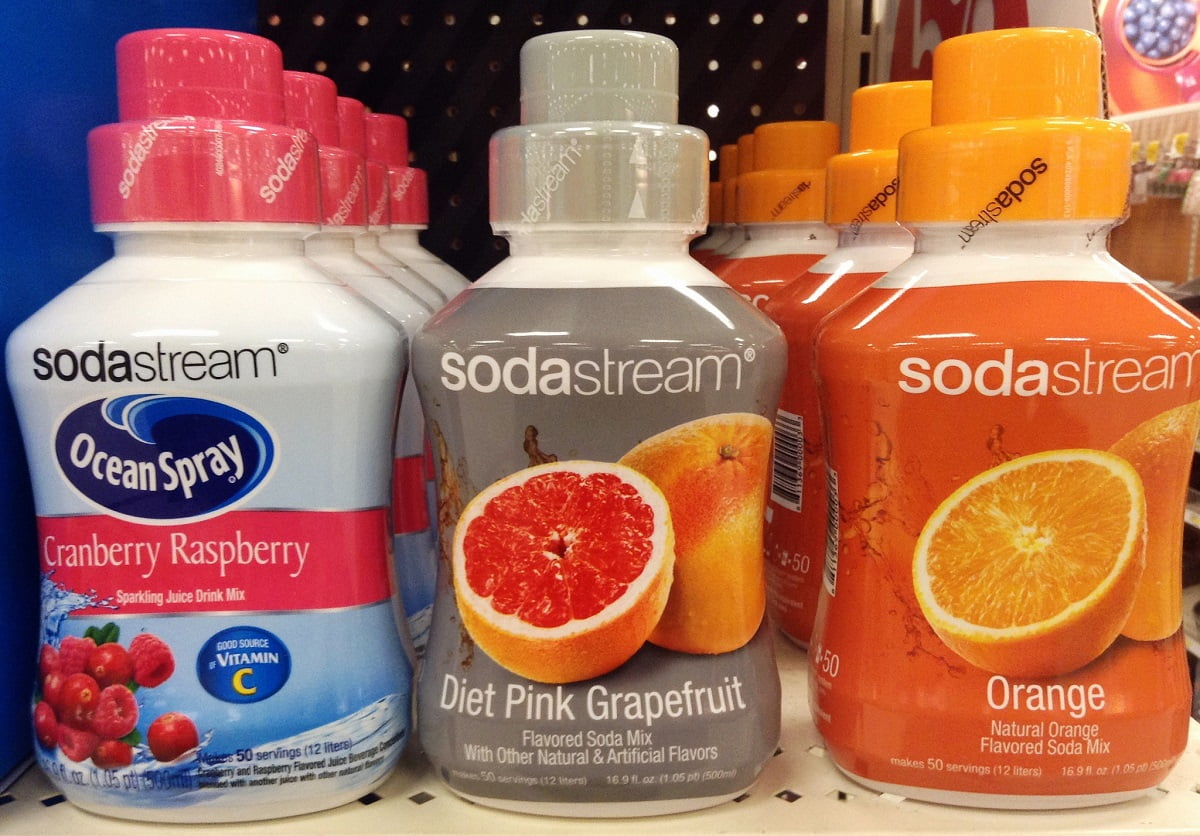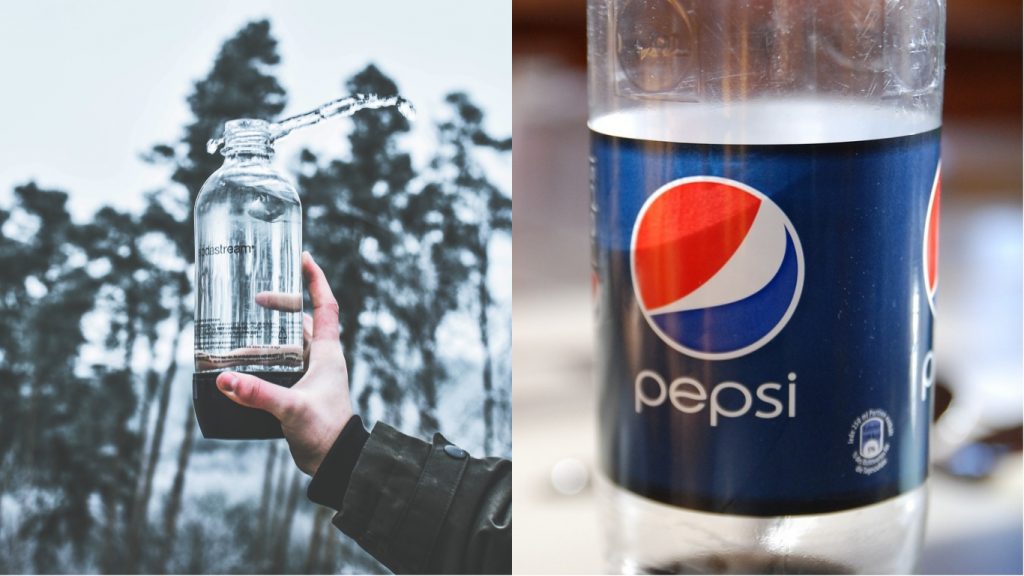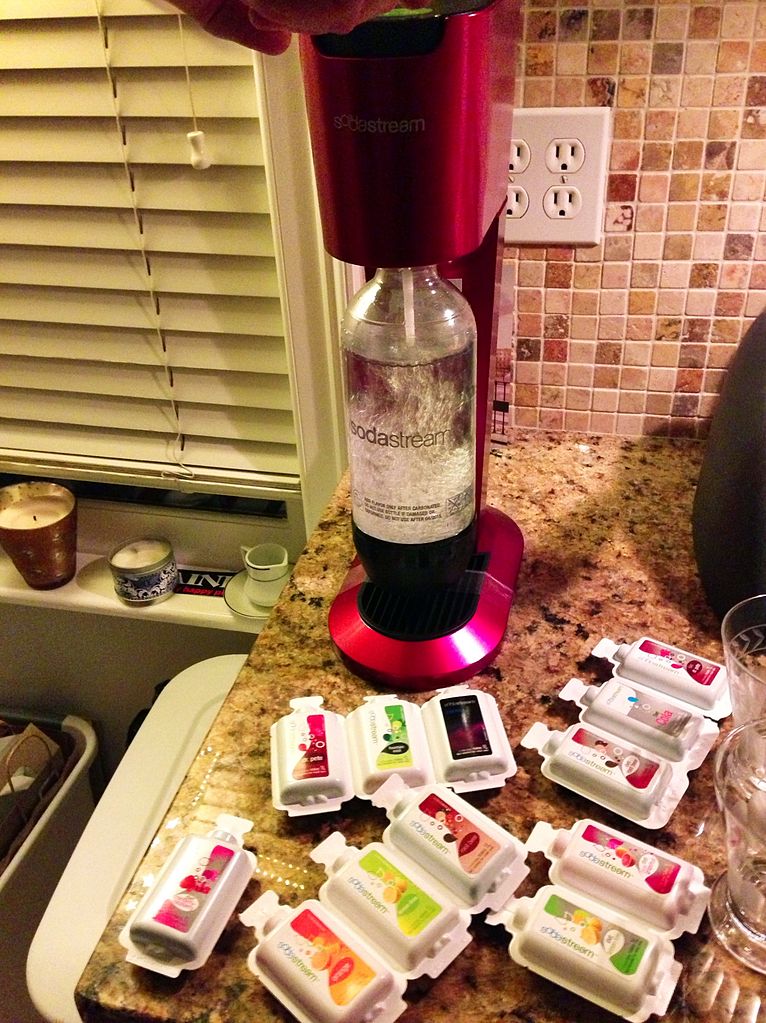Global beverage giant PepsiCo announced on Monday that it is buying SodaStream, the Israeli developer of at-home carbonated beverage units for sparkling water in a $3.2 billion deal. It is the third billion-dollar exit for an Israeli company in 2018, following the May acquisition of Frutarom, the Israeli maker of flavors and natural specialty fine ingredients, for $7 billion, and the purchase two months prior of Israeli electronic and industrial products manufacturer Orbotch by California semiconductor equipment maker KLA-Tencor Corp for $3.4 billion.
PepsiCo and SodaStream said that the major soft drink maker will pay $144 a share in cash for the Israeli manufacturer, which is a 32 percent premium to its 30-day average price.
This deal is PepsiCo’s largest buyout in eight years, and expands the reach of the soft drink maker into the homes of consumers who are on a more health-conscious and environment-friendly track. SodaStream has touted itself as an environment-conscious company, working to diminish disposable plastic use and promote reusable bottles, and as a healthy alternative to fizzy drinks loaded with sugar.
SodaStream products are available in more than 80,000 retail stores across 45 countries, according to the company.
According to the deal, set to close in January 2019 subject to regulatory approvals, SodaStream will become a subsidiary of PepsiCo, and its long-time CEO Daniel Birnbaum will stay on to lead the company’s growth.
The Tel Aviv Stock Exchange said SodaStream’s Israel-listed shares will be halted for trading until its Nasdaq-listed stock opens later on Monday.
“The intent is to maintain the business as a standalone unit, keep the growth, maintain the culture and not stifle the organization with corporate types of restrictions,” Birnbaum told the Financial Times.
Prime Minister Benjamin Netanyahu congratulated SodaStream on the acquisition deal and welcomed the plan to remain in Israel.
“The recent major acquisitions of Israeli companies prove not only the technological capabilities that have been developed in Israel but the business capabilities as well. I welcome this huge deal that will enrich the state treasury and also the important decision to keep the company in Israel,” he said in a statement.

SodaStream flavors sold in a US store. Photo by Mike Mozart , CC BY 2.0
Why buy SodaStream?
While the two companies have been in talks “on and off” for a couple of years, PepsiCo CFO Hugh Johnston told financial news television channel CNBC that the move was still an unusual one for CEO Indra Nooyi, who announced earlier this month that she would step down in October after 12 years at the helm.
“Daniel [Birnbaum] and his leadership team have built an extraordinary company that is offering consumers the ability to make great-tasting beverages while reducing the amount of waste generated,” Nooyi said in the statement.
PepsiCo President Ramon Laguarta, who will succeed Nooyi said, “SodaStream is highly complementary and incremental to our business, adding to our growing water portfolio while catalyzing our ability to offer personalized in-home beverage solutions around the world.”
“PepsiCo is finding new ways to reach consumers beyond the bottle,” he continued.
Those new methods of reaching consumers mean diversifying its offerings to attract customers beyond a weakening cola and soda market and tapping into an at-home market in order to counter it. As reports came out last year that domestic consumption of sparkling water has more than doubled in the past five years and by 2016, Americans had chugged down as much as 574 million gallons, according to numbers from the Beverage Marketing Corporation, Birnbaum shifted SodaStream’s marketing to push the company’s household drink systems and carbonated units.
SEE ALSO: Futbol Fun: SodaStream Marks 2018 World Cup With Special-Edition Team Bottles
Sign up for our free weekly newsletter
SubscribeThe United States was still a tough market to enter and even as Birnbaum signed agreements with Crate & Barrel and Williams Sonoma to stock their machines, Americans were still not partial to sparkling water, opting for seltzer instead. That is, until 2014 and 2015 when soda sales began to decline overall. PepsiCo has appeared to have caught on to this dip and thinks SodaStream could be its saving grace — at the very least to strike back against rival Coca-Cola, who has been slow in its own attempt to venture into the at-home market.
“We get to play in a business — home beverages — where we don’t play,” PepsiCo CFO Hugh Johnston told CNBC.
The eco-friendly beverage
SodaStream prides itself on being an environmentally-friendly drinks maker. The company was chosen by a panel of sustainability experts to win Business Intelligence Group’s 2017 Global Corporate Sustainability Award for its line of eco-friendly sparkling water makers and has become an advocate for the discontinuation of plastic bottles within the beverage industry. The company has said “the use of one soda bottle in Israel is an alternative to 3,833 bottles and disposable cans per family over three years.”
PepsiCo also hopes to harness SodaStream’s at-home drink system to hit back at the environmental concern that has led soft-drink producers, including Coca-Cola to focus on less plastic and bottle use and more beverages at home.
“Worldwide, there’s a billion and a half disposable bottles and cans used every single day,” Birnbaum tells the American Marketing Association. “Water in a bottle at home? It’s ridiculous and it’s criminal. Especially if your tap water is of high quality. In America, tap water is good.”
Made in Israel
SodaStream has over the years gained international fame for its celebrity presenters, which has in turn invited the attention of the BDS (Boycott, Divestment, Sanctions) movement.
SodaStream was the subject of a fierce BDS campaign in 2014 following the hiring of American actress Scarlett Johansson as an ambassador for the organization. Johansson submitted her resignation to Oxfam, a British NGO for which she also served as an ambassador after the latter demanded that Johansson cut all ties with SodaStream over a factory it previously operated in the Mishor Adumim industrial zone of the settlement Ma’aleh Adumim.
Mishor Adumim is at the edge of the Judean Desert, and the factory employed hundreds of Palestinian Arabs, but BDS caused SodaStream to close that factory and move to the Negev desert area instead, where it now employs hundreds of Israeli Bedouins. Oxfam later admitted that it had lost “thousands of donors” over its quarrel with Johansson.
Last year, the company decided to begin displaying a large Israeli flag with the words “MADE IN ISRAEL” on all of its packagings. Below the flag a note reads, “This product is made by Arabs and Jews working side by side in peace and harmony.”
“Israeli industry is a symbol of entrepreneurship, innovation and technology,” Birnbaum said in a statement at the time. “As a proud Israeli company, we make sure to keep our Israeli identity at a high profile, even if it means fighting on the home front across the EU and against the economic terrorism of the BDS movement. In recent years, we Israelis have found ourselves attacked, forced to apologize, and [our products] seized around the world. We Israelis may not be perfect, but we have much to be proud of, and we decided to show it – both for ourselves and for the world.”
Birnbaum said that the Israeli flag would be placed on all of the company’s products, 50 million of which are on store shelves worldwide at any given time. “We hope that every Israeli company does the same for the products they sell, whether it is a microchip, a tomato, or a watering system. We wish that everyone would feel comfortable being an ambassador for Israel.”
Related posts

Editors’ & Readers’ Choice: 10 Favorite NoCamels Articles

Forward Facing: What Does The Future Hold For Israeli High-Tech?

Impact Innovation: Israeli Startups That Could Shape Our Future





Facebook comments